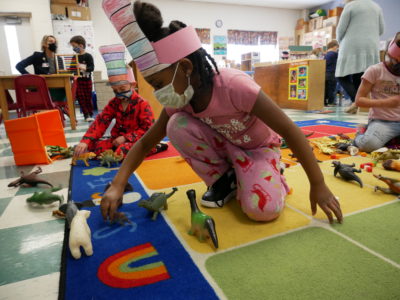
As the North Carolina General Assembly considers yet another round of state tax cuts, it helps to frame the issue by recalling the oft-repeated aphorism of a veteran U.S. Senator who neatly captured a prevailing American attitude toward tax reform.
Russell Long, son of the Louisiana populist Huey Long, served 37 years in the U.S. Senate, many of them as powerful chair of the tax-writing Finance Committee. The younger Long did not seek to “soak the rich” with the ardor of his father; still he left an imprint on the nation’s tax code while tartly warning lawmakers against a fanciful notion: “Don’t tax me; don’t tax thee; tax the fellow behind the tree.”
At a moment when North Carolina state government has $5 billion in unspent revenue, along with as much as $5 billion in federal pandemic relief in sight, legislative proposals for even a partial roll-back of recent General Fund tax cuts appear without realistic traction this year. More significant is whether lawmakers will enact — or hold the line against — tax reductions that will further erode the revenue base in the face of such years-long challenges as enhancing the corps of professional teachers, meeting the myFutureNC postsecondary attainment goals, and heeding the call of business leaders for expanding access to high-quality pre-K.
Over the past decade, Republican lawmakers appealed to “me” and “thee” by cutting income tax rates for both individuals and corporations. They replaced the graduated income tax structure with a lower flat rate. They reduced the corporate rate to 2.5%, the lowest in the nation. An increase in the standard deduction benefitted middle- and lower-income taxpayers, but overall the tax-cut spree tilted deliberately to businesses and the affluent.
Republican tax-writers picked up revenue from the “fellow behind the tree” by extending the sales tax to previously exempt services – such as, electricity, natural gas, and repairs to property and vehicles. Even with the broadening of the sales tax, however, shifts since 2013 reduced annual general fund revenues by more than $4 billion in 2019-2020, according to legislative and executive budget analysts.
Now, Republican lawmakers are considering further tax reduction by increasing the standard deduction and lowering the individual income tax rate from 5.25 % to 4.99%. The business franchise tax also may be in play. The potential package could cost more than $1 billion in revenue.
Democratic Gov. Roy Cooper has an alternative, much less expansive but more targeted, two-part tax cut proposal — an earned income tax credit for lower-income workers and a credit for child and dependent care. The Cooper package would cost an estimated $366 million.
Thus is North Carolina entering another round of a long-running fundamental argument — political, ideological, and economic — over which better stimulates societal and individual well-being: upper-income tax cuts that also limit government’s reach, or tax-fueled investments in schools, colleges, universities, health care, environmental controls, and quality-of-life amenities.
In late 2020, scholars at the London School of Economics and Political Science examined the impact of major tax cuts over 50 years in 18 countries, mostly European. Their findings contest the notion that sweeping tax cuts for the wealthy surely lead to economic expansion.
“We find that major reforms reducing taxes on the rich lead to higher income inequality as measured by the top 1% share of pre-tax national income,” says the London School paper. “In contrast, such reforms do not have any significant effect on economic growth and unemployment.”
While the paper does not focus on American states, it’s unlikely that North Carolina would diverge from the norm. In personal income and gross domestic output, North Carolina rebounded from the 2001 recession with higher tax rates at roughly the same upward trajectory as the state grew after the 2013-17 tax shifts, as indicated by these charts from the St. Louis FED on per capita personal income and total gross domestic product.
The state’s dramatic upsurge over the past quarter of a century, interrupted by the Great Recession and COVID-19, has not spread the wealth evenly among people and places. The state’s robust regions of population and job growth have been propelled not as low-tax refuges but rather as places of talent and livability, fueled by public initiatives and institutions as well as private investments. As Russell Long’s aphorism teaches, a society advances with an understanding that the dues of a democracy come from a balance of taxes on “me” and “thee” as well as the “fellow behind the tree.”




